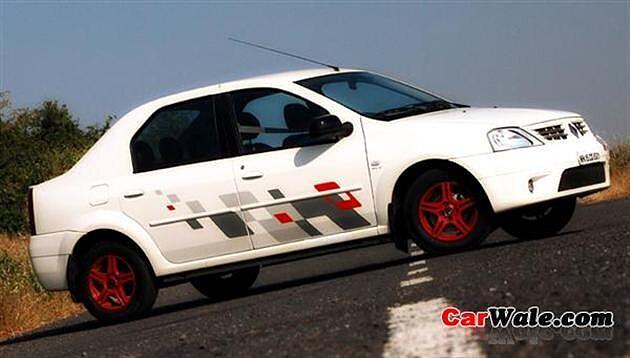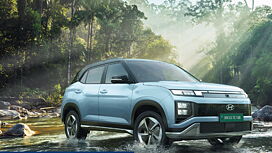Introduction

Think Renault, think of the turbo era in Formula 1. Renault was the pioneer of the turbo era in Formula 1 which began in 1977 and lastes till 1988 with 1.5-litre engines producing whopping power in the range of 600-1000bhp. Renault has been known for producing one of the most reliable Formula 1 engines since the mid-70s (first turbo-charged engine to win a Grand Prix in 1979); post-turbo era, the Williams-Renaults and the Benettons (with Renault engines) dominated the early 1990s in Formula 1.
Renault isn’t just about motorsports, it has a long history in automobiles as well. In 1898, the Renault Voiturette (Renault’s Little Car) was Renault’s first production car. Later on, many successful models like the Renault 5 (launched in 1972 and later renamed as Super 5 with a transverse engine) .
In 1999, Renault proclaimed the Logan was the final product from the ProjectX90, after the French auto giant purchased the Romanian auto manufacturer Dacia in 1998. The Logan was designed with the view of selling an affordable car and some simple features reduced the cost. The Logan made its way to India in June 2007, in collaboration with Mahindra & Mahindra which helped them reduce production costs. This was the first right-hand drive Logan to go into production. The Mahindra-Renault Logan has undergone a few cosmetic changes that give it a sporty look and has been rebadged the Logan Play.
Design

The Mahindra Renault Logan is based on the Nissan B platform, which is a platform jointly designed by Renault and Nissan; the other well-known cars designed on the Nissan B platform are the Nissan Micra, Renault Sandero and the Nissan Bluebird Sylphy G11 (predecessor of Nissan Sunny). The challenge for the Renault designers was crafting a modern sedan within a limited manufacturing cost.
The Logan may not be one of the best looking sedans sold in India, but are cars sold only on basis of their looks? The not so good-looking Toyota Qualis is one recent example. The Logan is a three-box sedan with a highly simplified design. The façade sports the sculptured bonnet with a medium-sized chrome diamond logo which separates the two horizontal chrome slates on the front grille; circular fog lamps and a honeycomb mesh grille for air intake.
The simple design flows to the side with flared wheel arches and large greenhouse, with the Logan Play sporting graphics on its side and red alloys, with the suitability of these add-ons being debatable. The wheels are also available in silver. The rear end of the Logan looks bland with tall rear lamp clusters, and the Logan Play features a body integrated rear spoiler. The Mahindra Renault Logan scored 3 stars in the Euro NCAP rating. 95% of the Logan sedan (the one sold in Europe) can be recycled in terms of weight.
Interiors

The Logan was designed for European families that own just a single car, and the idea was to build a compact but spacious sedan. Get inside the Logan and you won’t be disappointed with the exceptional space it offers and it can comfortably seat five large adults. The interiors are designed ergonomically but the fit and finish of the beige interiors could have been a lot better.
The orange-backlit instrument cluster of the Logan consists of two dials with a display in between the two. This shows information such as the odometer and tripmeter reading, time, fuel and temperature levels. Oddly enough, the distance-to-empty gauge doesn't work when the fuel level drops into reserve, which is the one time a driver will really need the readout. The centre console of the Logan has circular air-conditioning vents above the single-CD audio system with remote and commonly found three-knob controls for the air conditioner. The vents direct air very well, and help chill the car in a short while. The power window switches are located high on the centre console, on either side of the hazard lights switch - something that takes a lot of getting used to. The switches for the rear windows are located behind the handbrake - no switches are present on the doors themselves. The audio system on the Logan is the reason it has been christened 'Play' but we wish that the system could have given Logan Play owners better sound. That said, the head unit can play all the usual file formats, accept USB drives and radio reception is good. In addition to this it sports a direct iPod control when you plug your iPod through the USB Cable. This is something we found quite handy. The fully featured remote is also a boon for rear seat passengers.
The Play sports black artificial leather seats with red stitching, which reminded us of the seats in the new Mitsubishi Cedia Sports and black centre console system with the rest of the interiors untouched in the original beige colour.
The driver’s seat is comfortable but the lack of steering wheel adjustment would have gone a long way in making a driver more comfortable. The large windshield area increases the front visibility; however, the right outside rear-view mirror doesn’t go far enough outward for some drivers – the inner edge of the mirror shows the car’s flank.
Climb into the rear seats and you won’t be let down when it comes to space. The seats are inclined at a good angle and feel comfortable. The Logan has 510 litres of boot space with easy access to the boot. Talking about safety, the Logan has a single SRP airbag for the driver.
Powertrain, Fuel Efficiency

Powerplant:
The Renault Logan is available with petrol and diesel motor options which power the front wheels through a 5-speed manual transmission. The petrol engine is Renault’s K7J engine, an 8-valve 1.4-litre engine that produces a power of 75bhp@5500rpm and a maximum torque of 110Nm@3000rpm. The diesel powerplant is a 8-valve 1.5-litre dCi engine (code name K9K) and is Renault’s top selling engine with almost 900,000 units manufactured in 2008 (only in Spain and Turkey) and this engine is available with several power ratings (65bhp to 110bhp) in other markets. Renault claims the engine design to be simple, low friction and have a superior cost-to-performance ratio. The Logan dCi engine powering the Mahindra Renault churns out 65bhp and a torque of 160Nm@2000rpm.
These engines are designed for better mileage, so one can’t expect a stonker in terms of performance. However, the diesel engine is fairly responsive considering the power it produces and overtaking isn’t too much of a problem as long as you keep the car in the powerband. The dCi is refined and quiet at lower revs however, once the tacho needle crosses 3000rpm, the motor sounds harsh. During our testing the diesel Logan clocked 0-100kph in 17.8 seconds and the quarter mile in 20.4 seconds.
Drivetrain:
The 5-speed gearbox on the Logan is a part of Renault’s JH transmission series. The gear ratios are well-matched for city and highway driving and unlike some other turbocharged diesels we’ve driven recently, the Logan never feels completely dead below the 2000rpm mark. The gear knob on the Logan is short and easy to engage. Shifting gears while winding around hills felt seamless. During our testing, the Logan dCi clocked 30-50kph in 4.1 seconds in the third gear, 7.3 seconds in the fourth gear and it took 8.9 seconds to cover 50-70kph in the fifth gear.
Fuel Efficiency:
The Logan diesel is highly efficient and returns a fuel efficiency of 14.8kpl. During our fuel efficiency test, which is mostly pedal-to-metal mode of driving, the Logan returned an efficiency of 12.4kpl.
Driving Dynamics

The goal of the Renault engineers was to make the X90 an affordable sedan, so the design of the car was simple; however, no compromise was made on the ride and handling of the car. The ride compliance of the Logan is adequate at low and high speeds. The Logan’s suspension design consists of struts for the front and H-section torsion beam for the rear with stiffened springs which doesn’t compromise the ride at high speeds.
The French engineers have tweaked the suspension set-up to make Logan a well handling sedan. The car feels planted and inspires confidence in the driver on straight or winding roads. Our team had loads of fun in the Logan on hilly sections. The car is always on the go and not much sign of body roll thanks to the stiffened springs and the front anti-roll bars.
The steering is accurate at low to medium speeds. However, at higher speeds it feels that the steering overdoes the input command and requires some correction. Once used to it, the steering feels precise even at higher speeds and responsive. The long wheelbase and the smaller tyre size of 185/70R14 (compared to the European variant which comes with 15-inch tyres) cuts the understeer factor in the car and driving on twisty hills in a Logan is fun.
The Logan’s brilliant ride and handling is coupled with good brakes which feel and bite well. In our brake test, the Logan traveled 34.3 metres before coming to complete standstill from 80kph. The JK Vectra tyres offer decent levels of grip and the tread noise wasn’t prominent. The tyres gripped fairly on most of the road surfaces however, the sidewalls feel a little stiff while turning and a softer sidewall could have helped.
Overall Evaluation

The Logan is undeniably a lot of car for the price. The red wheels might be too loud for some people, but they manage to look good on the white car. Mahindra has moved upmarket by adding a music system, fog lamps and graphics on the Logan Play. However, they might find it a little hard to shake off the ‘taxi’ image which the Logan has garnered since its launch. The Logan Play could have been much more, and we wish it was, but we suspect Mahindra aren’t too worried about the Play. Expect some surprises from them at the Auto Expo in January.
Test Data
Engine Specifications
1461cc, 4-cylinder inline turbodiesel, 65bhp@4000rpm, 160Nm@2000rpm. View specifications
Speedo Error
|
Max in Gear
| Gear | Speed (kph@rpm) |
|---|---|
| 1st | 42.3@4900 |
| 2nd | 75.6@4900 |
| 3rd | 105.4@4900 |
| 4th | 142.2@4800 |
| 5th | 154.7@4600 |
| 6th | -- |
Performance Test Data
| Top Speed | 154.7kph |
|---|---|
| 0-60kph | 7.1sec |
| 0-100kph | 18.21sec |
| Quarter Mile (402m) | 20.80sec@102.41kph |
| Braking 80-0kph | 3.5 sec@39.2m |
| 30-50kph in 3rd | 4.6sec |
| 30-50kph in 4th | -- |
| 50-70kph in 5th | 9.6sec |
Fuel Efficiency
| City | Highway | Overall | Worst | |
|---|---|---|---|---|
| Mileage (kpl) | -- | -- | 14.8kpl | 12.4kpl |



![Mahindra-Renault Logan [2009-2011] Image Mahindra-Renault Logan [2009-2011] Image](https://imgd.aeplcdn.com/272x153/cw/cars/no-cars.jpg?q=80)





















